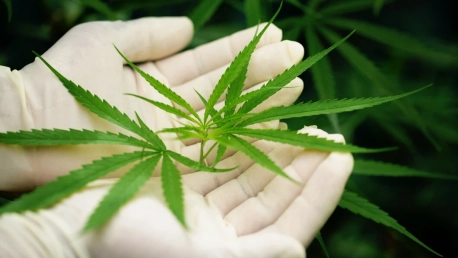As the field of medical research forges ahead, certain pioneering companies are facing a formidable hurdle. MMJ BioPharma Labs and MMJ International Holdings, at the forefront of developing cannabis-based pharmaceuticals, find themselves entangled in a problematic scenario with the Drug Enforcement Administration (DEA). These companies have crossed significant milestones with the Food and Drug Administration (FDA), including filing Investigational New Drug (IND) applications to target diseases like Multiple Sclerosis and Huntington’s Disease through clinical trials. Yet, they remain in a bottleneck imposed by the DEA, which withholds the necessary approval for cultivating specific cannabis strains essential to these trials. This article delves into the complexities and implications of this contentious standoff, questioning whether regulatory roadblocks are hindering what could be transformative medical advancements.
FDA vs DEA: A Battle for Cannabis?
The friction between the FDA’s progress and the DEA’s reticence resonates through the cannabis medical research community. Duane Boise, President of MMJ BioPharma, showcases his dismay, viewing the DEA’s slow response as a blatant hindrance to advancing critical treatments. Out of desperation and a sense of responsibility toward patients with severe medical conditions, MMJ BioPharma took an assertive step, resorting to legal action. By filing a federal lawsuit against the DEA, the company signaled the gravity of the situation, stressing the need to expedite research that might change the trajectory of debilitating diseases.As the legal case wrangled in the bureaucratic web, the DEA’s dragging heels pointed to a broader issue of regulatory inertia. Such delays not only freeze potential relief for patients but also prompt a larger question about the balance of power and the agility of federal agencies in adapting to evolving medical science. This disparity presents a stark image: a federal agency in seeming deadlock with innovative enterprises and the health interests they represent.
Political and Bureaucratic Barriers
Secretary Xavier Becerra of Health and Human Services has carved a path forward by approving a rescheduling recommendation that would place cannabis in Schedule III, a category acknowledging its medical efficacy. However, this green light seems dimmed by the fog of DEA reluctance and potential internal opposition. While such a reclassification would maintain stiff oversight, denoting a cautious step toward legitimizing marijuana’s therapeutic applications, the DEA’s ambiguous stance suggests a labyrinth of policy lagging behind scientific discovery.The clash depicts a canvas where political and bureaucratic barriers intertwine, raising a fundamental discord between governmental agencies. Even as one arm of the government recognizes cannabis’s medical value, another arm appears to be seizing up, hindering the operational flow necessary to translate this recognition into tangible medical research and patient care advancements. This obstruction, whether due to bureaucratic red tape or entrenched resistance, highlights an urgent need for more coherent federal policies in step with modern medical science.
Reproducibility Concerns in Cannabis Research
At the crux of the medical cannabis debate rests a key scientific conundrum: the reproducibility of cannabis chemistry. With a variety of strains and a complex chemical makeup, standardization becomes a Herculean task that is essential for sanctioned medical use. Lawmakers, like Rep. Andy Harris, have underscored these reservations, spotlighting the irregularity of products proliferating in state dispensaries. These disparities throw into relief the challenges of replicating consistent medicinal properties, a core hallmark required for FDA approval.In response, MMJ’s Chief Scientist, Dr. Elio Mariani, remains stalwart, assuring that the company cleaves to the rigorous guidelines that the FDA mandates. This steadfast adherence is designed to ensure that their drug formulations not only meet but exceed the necessary standards for consistency, backed by substantial evidence. Dr. Mariani’s conviction underscores MMJ’s belief in their scientific process, one framed by precision and controlled experimentation, as they navigate through the tempest of regulatory and scientific challenges.









